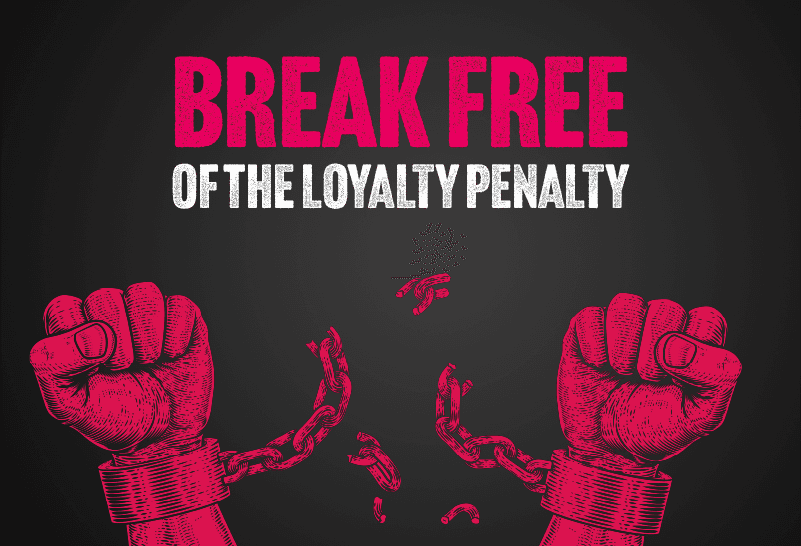- Privacy
- Blog
- Save
Don't you just love car insurance!
It’s not the most exciting thing, but if you have a car, you have to have insurance. When the renewal comes around we don’t always pay much attention to the mail that arrives from the insurer. Some people are on automatic renewals and before they know it, two or three years have passed and the premium has crept up and up. Or others forget to renew altogether. But a better way is in reach.By Rightly
6 min read

What rules govern car insurance renewals?
In the UK, there are rules and regulations governing car insurance renewals. These rules aim to promote fairness, transparency, and consumer protection in the insurance industry. Here are some key regulations and practices related to car insurance renewals:
- Renewal notices: Insurance companies are required to send renewal notices to policyholders before the expiration of their current policies. The notice must contain specific information, including the renewal premium, any changes in policy terms or coverage, and details on how to cancel or make changes to the policy
- Renewal premium disclosure: The renewal notice must clearly state the premium for the upcoming policy period. Insurance providers must also disclose the previous year's premium alongside the new premium to facilitate comparisons and enable policyholders to assess any changes in pricing
- Automatic renewals: Insurance policies in the UK typically have an automatic renewal feature, meaning they will renew unless the policyholder takes action to cancel or make changes. However, insurers must provide clear information on how to opt-out of automatic renewal, making it easier for policyholders to exercise their choice
- Renewal price transparency: Insurance companies are expected to provide transparent information about any changes in the renewal premium compared with the previous year's premium. This helps policyholders understand the reasons for premium increases and make informed decisions about their insurance coverage
- Cooling-off period: After renewing your car insurance policy, you usually have a cooling-off period during which you can cancel the policy without incurring any penalties. The cooling-off period is usually 14 days, allowing you time to reconsider your decision and explore alternatives.
My car insurance has been automatically renewed - can I cancel?
Often, car insurance policies have a renewal period, during which the policy is automatically renewed unless you take action to cancel or make changes to your policy. But, the specific terms and conditions of your policy may vary, so it's important to review your policy documents or contact your insurance provider to understand the cancellation process and any fees or deadlines they might want to apply.
If you want to cancel your car insurance policy after it’s been automatically renewed, you should contact your insurance provider as soon as possible. Explain your situation and enquire about their cancellation procedures. Some insurance companies may have a cooling-off period after the renewal where you can cancel the policy without penalties, but this may vary depending on the terms of your specific policy.
Remember that cancelling your car insurance policy may have consequences, such as losing coverage and potentially incurring fees or penalties. If you're considering cancelling, unless you’re no longer going to have a car, it's important to have alternative cover in place to comply with any legal requirements and to protect yourself financially in case of accidents or damages.
To ensure accurate and specific advice regarding your car insurance policy, consult with your insurance provider directly or seek guidance from a licensed insurance broker.
What if my car insurance renews automatically and I’m unhappy about it?
Here's what you can consider doing:
- Review your policy: Carefully review the renewal notice and the terms and conditions of your policy. Pay attention to any changes in coverage, premiums, or policy terms. Understanding the details will help you assess why you are unhappy with the renewal.
- Contact your insurance provider: Reach out to your insurance provider and express your concerns. Discuss the reasons why you are dissatisfied with the renewal, such as increased premiums or changes in coverage. Inquire about potential options or alternatives that may address your concerns.
- Explore other insurance options: Take the opportunity to shop around and obtain quotes from other insurance providers. Comparing prices, coverage options, and customer reviews can help you find a policy that better suits your needs and preferences.
- Consider cancellation: If you are unable to resolve your concerns with your current insurance provider, you may choose to cancel the policy. Review the cancellation process and any associated fees or penalties outlined in your policy. Make sure you have alternative insurance coverage in place before cancelling to comply with legal requirements and protect yourself financially.
- Seek professional advice: If you're uncertain about the best course of action, consider consulting with an independent insurance advisor or broker. They can provide expert guidance based on your specific situation and help you navigate the insurance landscape.
What happens if I don't renew my car insurance?
If you choose not to renew your car insurance policy, there are several potential consequences:
- Loss of coverage: The most immediate consequence of not renewing your car insurance is that you will no longer have coverage for your vehicle. This means you won't be protected against financial losses resulting from accidents, theft, or other covered incidents
- Legal requirements: Having car insurance is mandatory - if you drive a car, you need to have it in place. If you allow your policy to lapse and drive without insurance, you will be in violation of the law. This can result in fines, penalties, or legal consequences
- Financial liability: Without car insurance, you’d be personally liable for any damages or injuries you cause in an accident. This includes both property damage and medical expenses for others involved. These costs can be substantial
- Difficulty obtaining insurance in the future: A gap in insurance coverage or a history of non-renewal may make it harder for you to obtain car insurance in the future. Insurance companies typically consider your insurance history when determining your premiums, and a record of lapsed coverage may be viewed as a higher risk.
When is the best time to renew my car insurance?
The best time to renew your car insurance can vary depending on your specific circumstances and the terms of your policy. However, here are a few factors to consider when deciding the timing of your car insurance renewal:
- Policy expiration date: It's generally advisable to initiate the renewal process well before your current policy expires. This allows you sufficient time to review your options, compare quotes, and make an informed decision. Waiting until the last minute could leave you without coverage if there are delays in the renewal process
- Comparison shopping: Renewing your car insurance gives you an opportunity to review your policy and explore other insurance providers. It's a good idea to compare quotes from multiple insurers to ensure you're getting the best coverage and price. Starting the renewal process a few weeks before your policy expiration date allows ample time for this research
- Changes in circumstances: If your circumstances have changed since your last renewal, such as buying a new car, moving to a different location, or experiencing changes in your driving habits, you should consider renewing your insurance sooner. Certain changes may affect your insurance rates or require adjustments to your coverage
- Potential discounts or savings: Some insurance companies offer discounts or incentives for renewing policies early or maintaining a good claims history. Checking with your insurance provider about any available discounts and considering these factors can help you decide on the optimal timing for renewal
- Avoiding coverage gaps: It's essential to ensure continuous coverage and avoid any gaps in insurance protection. Waiting until your policy expires before renewing increases the risk of driving without coverage, which can have legal and financial implications.
Make the most of your data
Rightly Save is a new service that automatically finds all your insurance policies and presents them to you in a single place, complete with renewal dates and the type of policy. Then the system will set up automatic reminders so you get plenty of notice of all your insurance renewals, whether for car, home, travel, pet or any others you even have forgotten about. That way you’ll have a chance to find a better deal before the company rolls you into a new year and a new price which you may not have had time to look at until it’s already done.
